6 AI-powered intelligent plugins that could change the way you make music
Meet a new generation of plugins powered by artificial intelligence and machine learning
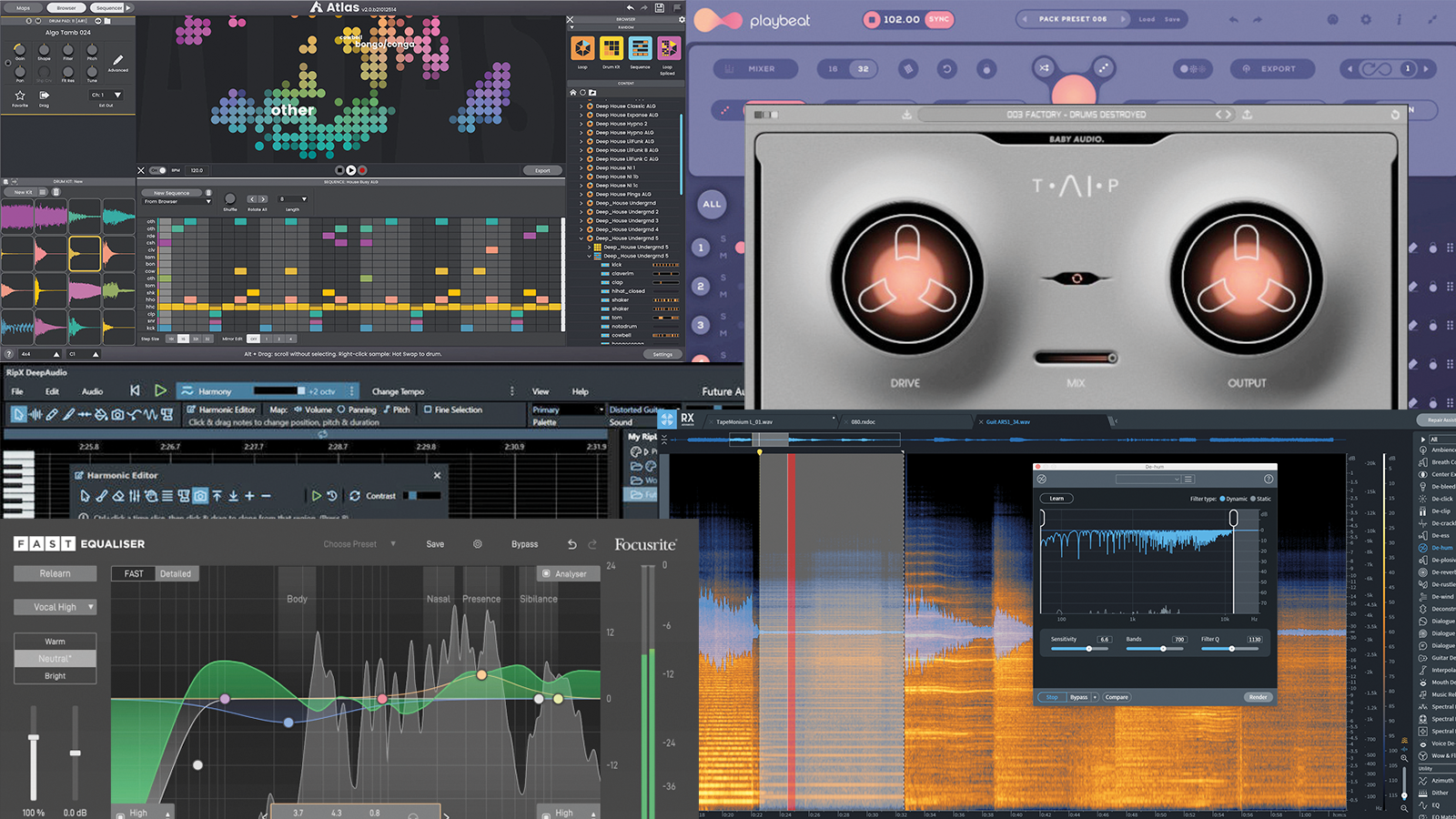
Core music-making skills don’t have a shelf life – if you could write, record and produce a great track in the past, those abilities are just as valid now as they ever were. Much like riding the proverbial bike.
Those skills might still need a little updating though. Music technology – both in terms of how we make it, and how we listen – is changing all the time, and it’s always worth keeping up with the latest developments.
When we talk about ‘intelligent’ or ‘smart’ plugins, we’re generally using these as catch-all terms for a variety of technologies involving some combination of forensic audio analysis, artificial intelligence and machine learning.
These are all terms that crop up in plugin promotional materials with increasing regularity. Their proliferation is down to more than fashion though – these are technologies that make use of the increasing processing power of modern computers. They are processes that simply wouldn’t have been feasible on home computers in the past.

Broadly speaking, these kinds of plugins are ones that can respond to context. Take an EQ as an example. Although a traditional EQ will let users boost or cut a variety of frequencies and may come stocked with presets aimed at specific types of material, the effect itself pays no heed to the material coming into the input – it simply applies a process as instructed.
An ‘intelligent’ EQ, on the other hand, will ‘listen’ to the incoming audio and adapt its processes based on what it thinks necessary, such as boosting the top end on a vocal or adding punch to a kick.
These technologies all come down to training algorithms to find patterns. Machine learning involves, essentially, educating a plugin to recognise things so that it can make decisions on how to respond.
Want all the hottest music and gear news, reviews, deals, features and more, direct to your inbox? Sign up here.
At their best, AI-powered plugins tend to support the creative decisions of the music maker, rather than attempt to overrule them
Take a noise reduction tool like those in iZotope’s RX, for example. Its ability to remove unwanted noise is based on the developers ‘training’ the algorithm to differentiate between desirable and undesirable elements of an audio file. Armed with this knowledge it can break the file down into very small elements and make decisions on what to keep and what to remove.
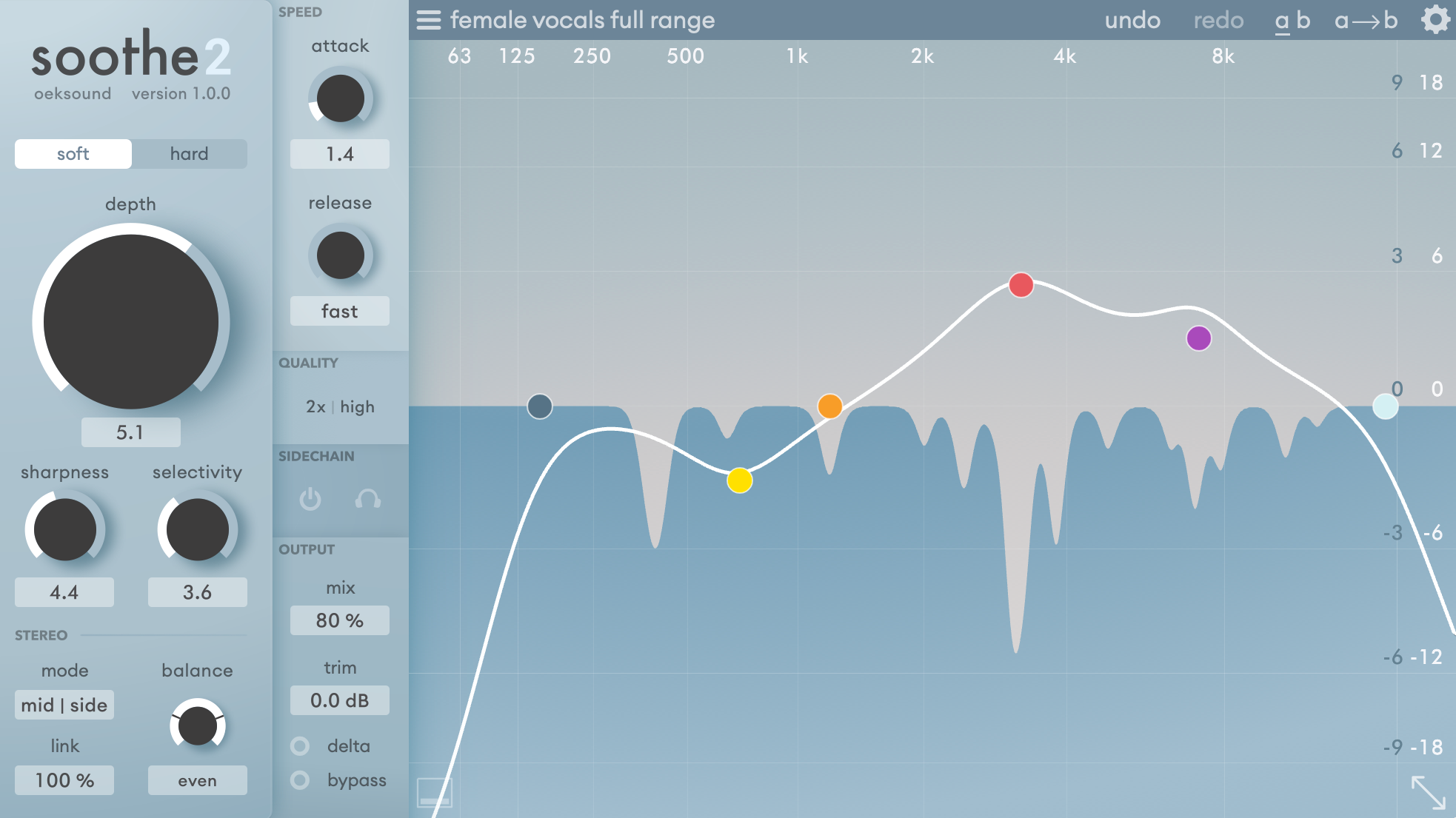
10 ‘intelligent’ mixing plugins that will make your life easier and save you time
To some, these kinds of technologies hold a lot of negative connotations. It’s easy to write off smart plugins as ‘automated’ music-making tools – ones that take the human skill out of music production. Probably the most controversial is LANDR, the AI-based online mastering service that claims to be able to provide a service traditionally seen as a ‘dark art’ requiring years of training and a studio full of vintage gear.
At their best, AI-powered plugins tend to support the creative decisions of the music maker, rather than attempt to overrule them. In the case of mixing tools, the tech is best thought of as a modern take on the usual stock presets found in many plugins. As you might turn to a ‘kick insert’ preset in a compressor plugin as a starting point, a smart plugin’s AI-powered compressor settings for your kick will likely provide a rough, convenient approximation of what’s needed that the user can adjust to taste.
1. iZotope RX 9
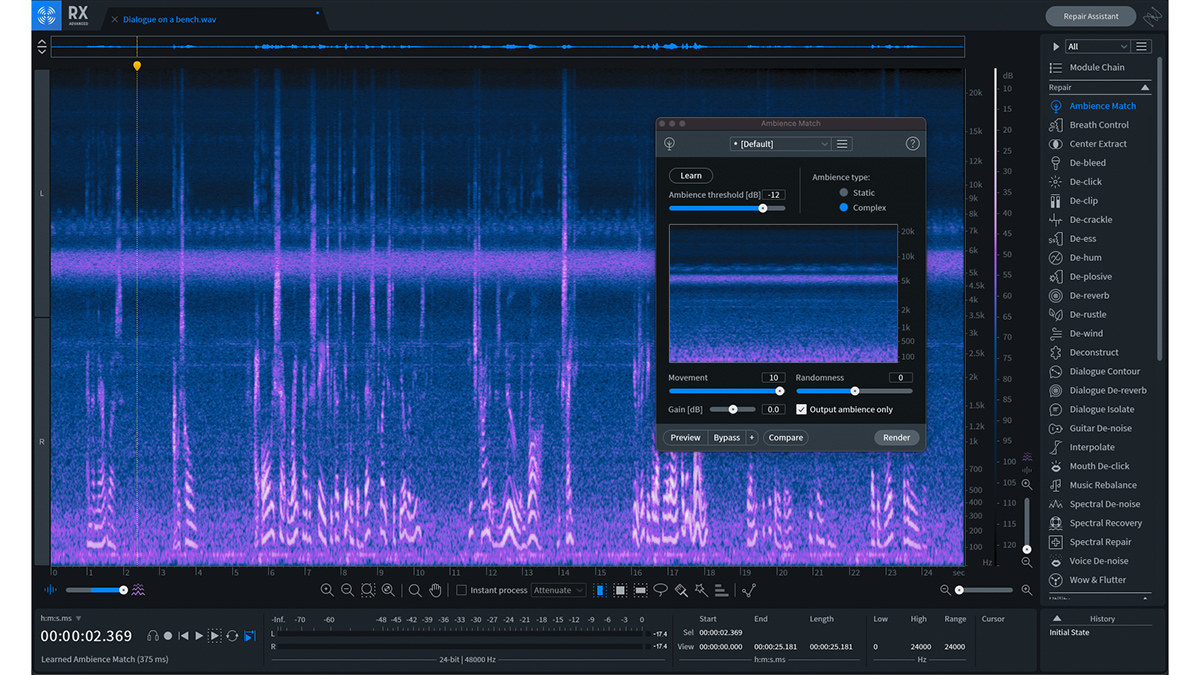
iZotope are relatively old hands when it comes to making use of AI and machine learning. You can find variations on these ideas present in Ozone’s Mastering Assistant or the smart features of Neoverb. RX is probably the company’s most powerful deployment of modern tech, though.
This audio restoration tool uses machine learning to offer smart suggestions on how to clean up and improve audio. It works remarkably well too. It’s thanks to this tech that RX keeps getting more and more effective, making it a must for studio, TV and other audio editing applications.
2. Focusrite FAST Series
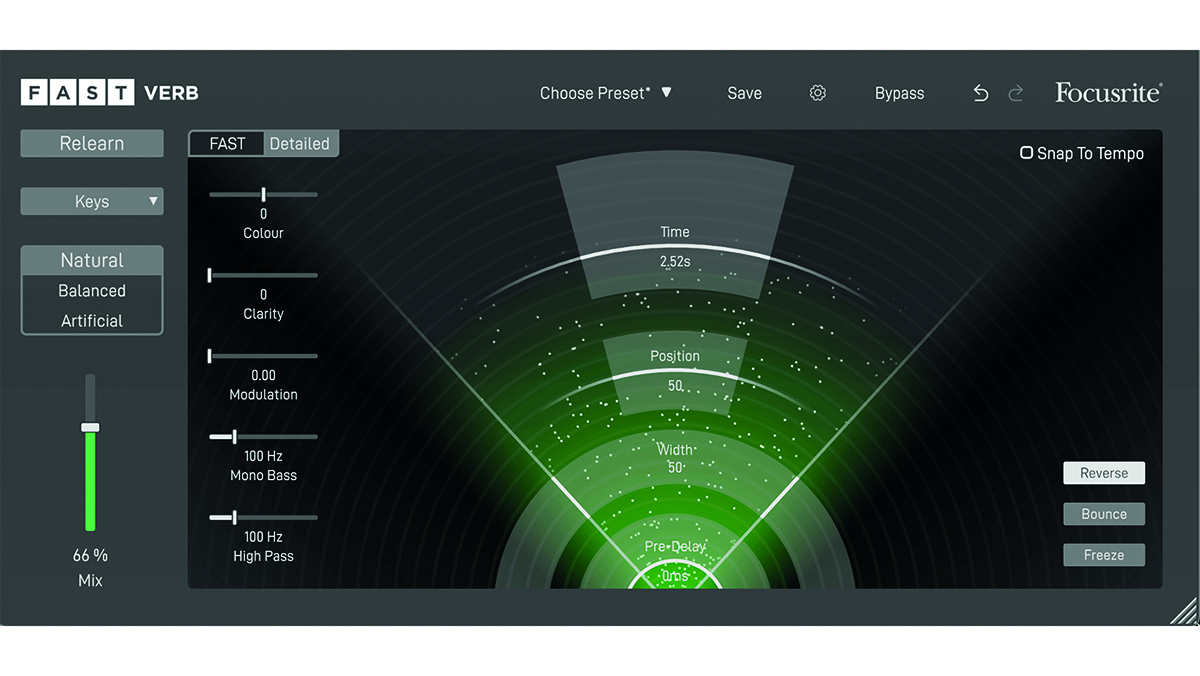
Focusrite’s recently-launched range of plugins are powered by tech from AI-specialists Sonible, whose Smart series of mixing tools could warrant inclusion in this list too. The reason we’ve opted for Focusrite’s take, however, is that these tools are an excellent example of how – despite sounding complex – ‘intelligent’ features can actually help to make mixing tools far simpler and more user-friendly.
The four plugins in the range, focusing on EQ, compression, reverb and spectral ducking, each use their AI tools to help apply context-specific presets that can gently steer even total beginners toward the right settings for the job.
3. Audiomodern Playbeat
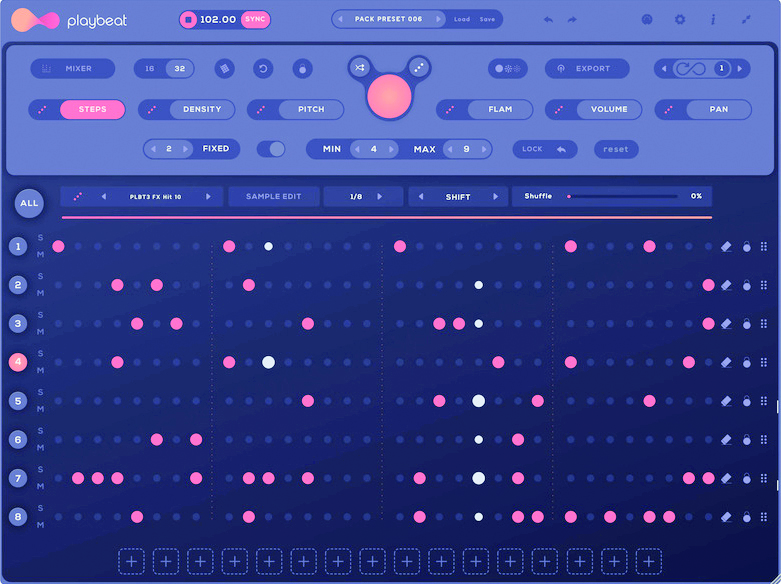
With Playbeat, Audiomodern apply an algorithm-driven approach to drum sequencing. On the surface, the plugin functions like a lot of other software drum machines. Users can import samples and sequence them across an eight-track step sequencer. There are parameters for varying pitch, level, flams, pan position, etc.
Where Playbeat is unique, however, is in its algorithms that can be used to randomise or remix a pattern based on current groove. This is where the ‘intelligent’ element of design lies – rather than simply randomise hits and parameters, it makes creative decisions inspired by the existing pattern.
4. Hit'n'Mix RipX
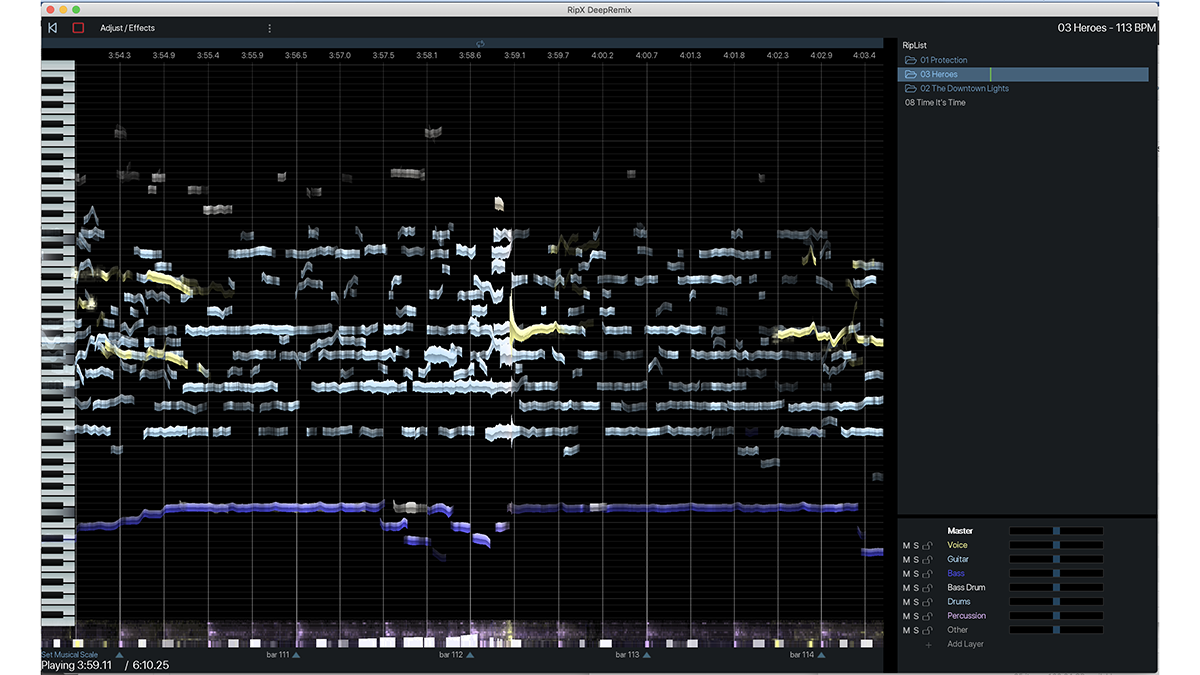
RipX is divided into two versions – DeepRemix and DeepAudio. The former of these promises the ability to split a fully mixed and mastered audio file down into individual instrument stems. Does it always work perfectly? No. But it’s still remarkably impressive, particularly when it comes to working with simple ‘band’ material (classic rock and pop tracks, for example).
Its functionality relies on machine learning to intelligently identify different elements within an audio file. The pricier DeepRemix does the same, but adds some impressive editing tools too. We particularly like the ability to isolate and edit ‘noise’ elements.
5. Algonaut Audio Atlas 2
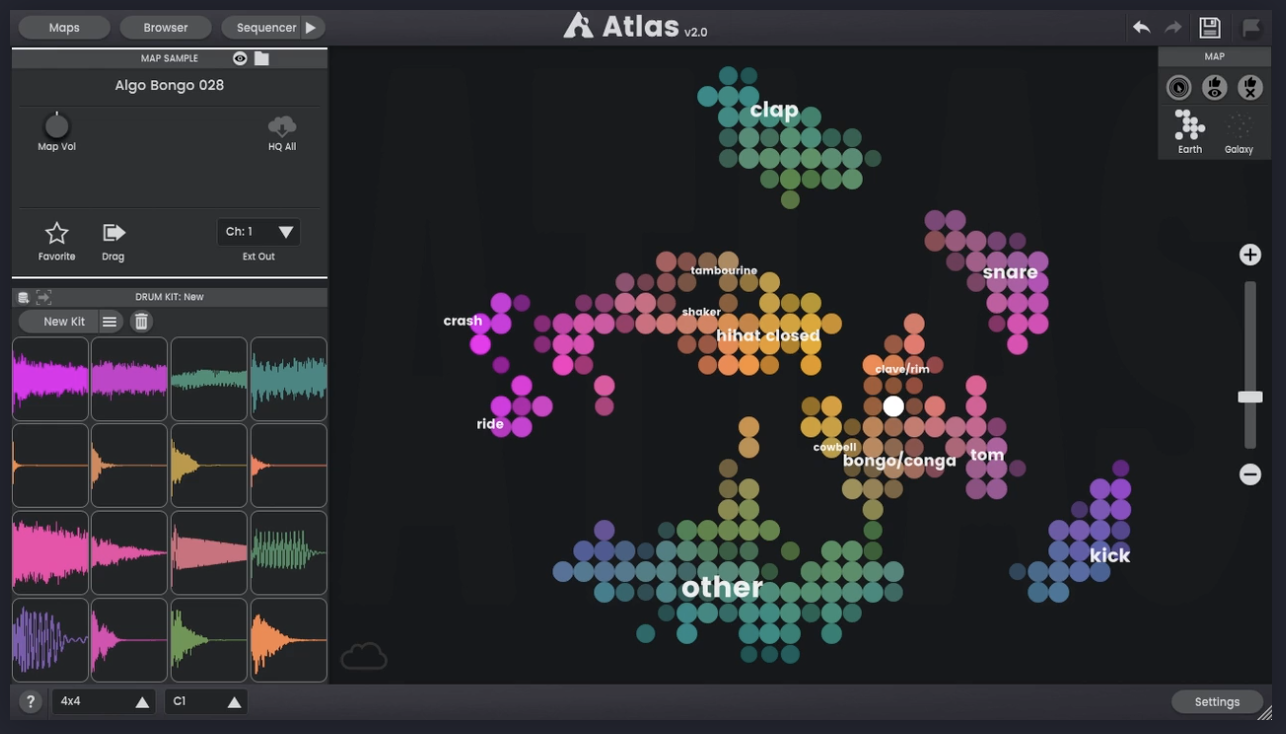
Atlas uses AI to take the pain out of wading through your unwieldy drum sample library. It works by analysing your sample folders and creating an elegant ‘map’ – coloured nodes that create clusters of samples grouped by sound-type and tone.
Even if you import a disorganised bundle of one-shots, melodic sounds and loops, Atlas will filter the non-percussive sounds to leave neatly-organised ‘maps’ of beat hits. This functionality is paired with a slick, pad-focused drum machine and step sequencer. There’s a good level of onboard sample editing too, and those smart features make it easy to swap sounds on-the-fly.
6. Baby Audio TAIP
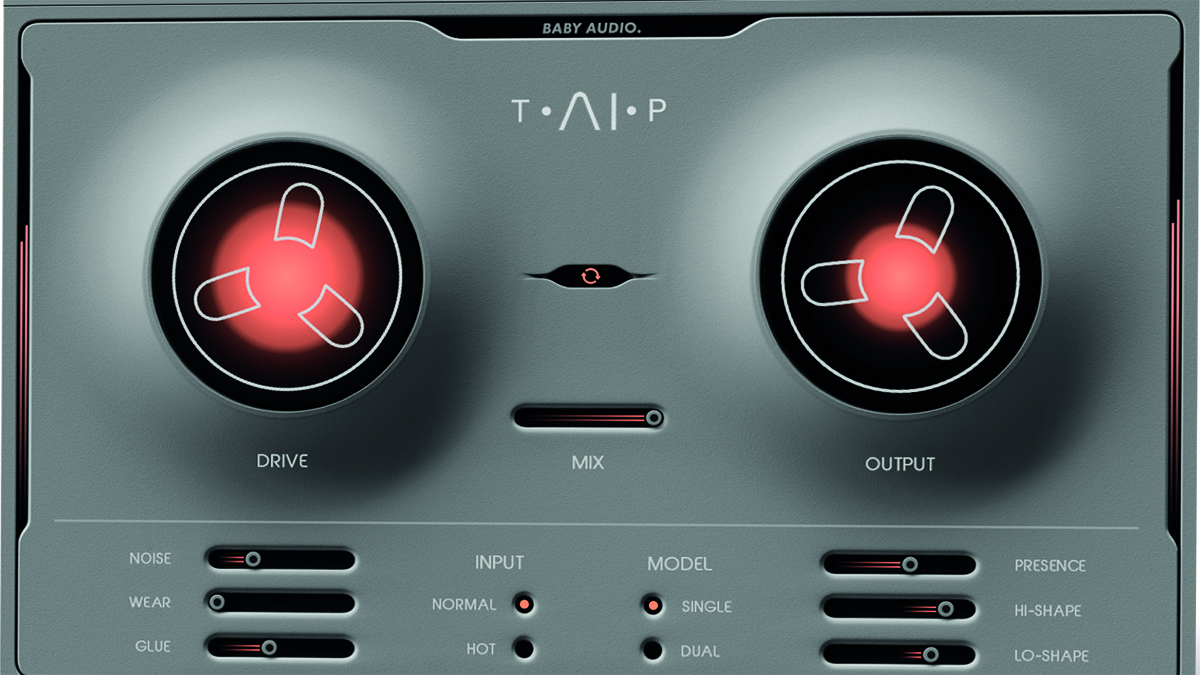
TAIP is an interesting marriage between modern tech and vintage effects. The concept itself is nothing new – a tape emulation that aims to impart the desirable inconsistencies of analogue tape machines. However, the approach taken is a little different.
According to Baby Audio, rather than use straight DSP, TAIP makes use of AI/neural networks to “accurately decipher the sonic qualities that make a tape machine sound and behave in the way it does”. This is done by feeding an algorithm with examples of dry and tape-processed audio in order for it to learn the precise differences between the ‘analogue’ and ‘digital’ versions of the audio.


Future Music is the number one magazine for today's producers. Packed with technique and technology we'll help you make great new music. All-access artist interviews, in-depth gear reviews, essential production tutorials and much more. Every marvellous monthly edition features reliable reviews of the latest and greatest hardware and software technology and techniques, unparalleled advice, in-depth interviews, sensational free samples and so much more to improve the experience and outcome of your music-making.
